Best Offshore VPN Services in 2025 [Expert-Tested]
An offshore VPN will protect your online activities, ensuring privacy and unrestricted internet access.
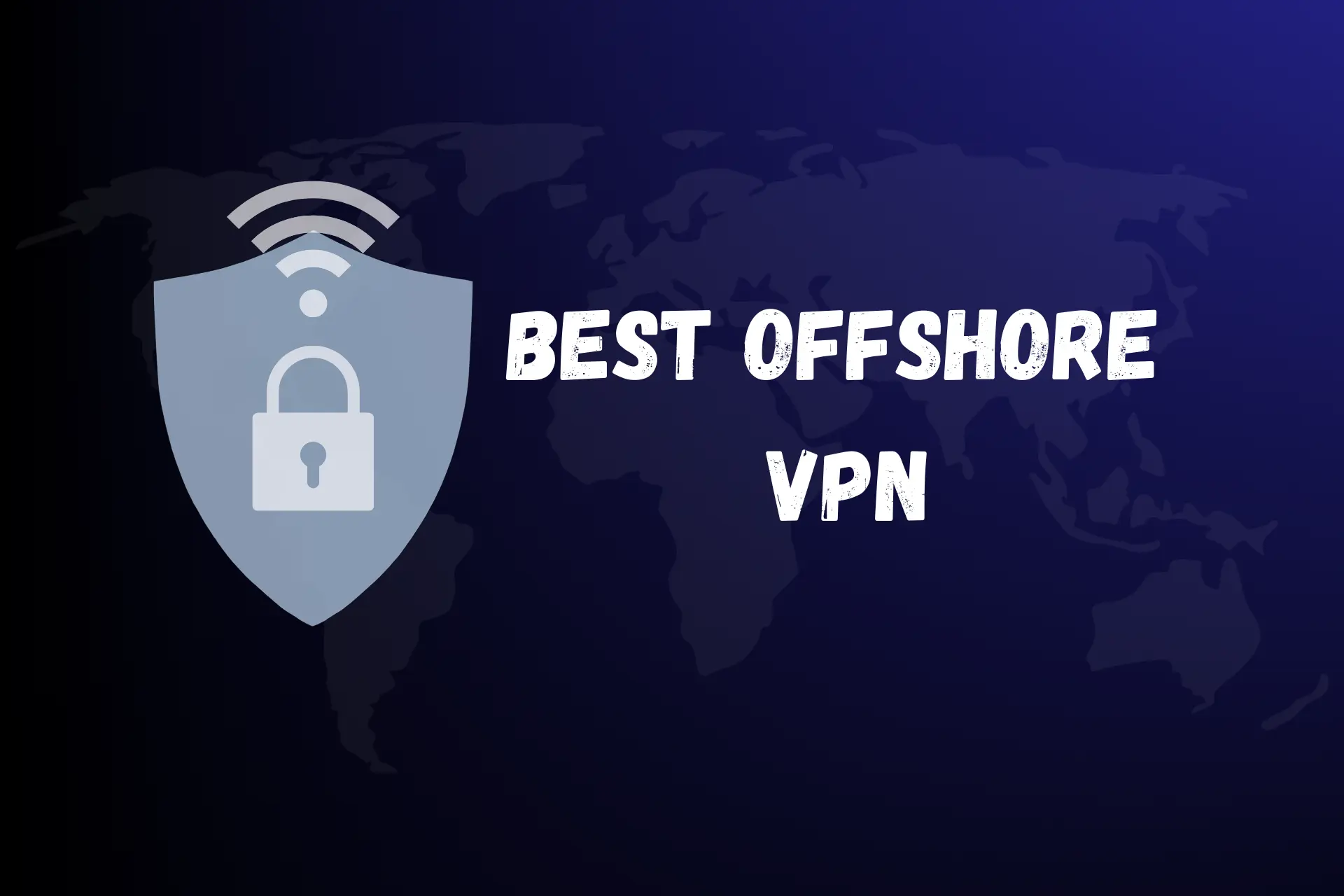
Find the best offshore VPN picks for maximum online privacy. As governments get nosier, it’s vital to find a VPN that sticks to its no-logs promise.
Check out our rundown of the best privacy-focused VPNs based outside the US and other snoopy zones. Get the lowdown on each VPN’s HQ and logging policy.

Access content across the globe at the highest speed rate.
70% of our readers choose Private Internet Access
70% of our readers choose ExpressVPN

Browse the web from multiple devices with industry-standard security protocols.

Faster dedicated servers for specific actions (currently at summer discounts)
What is an offshore VPN?
An offshore VPN operates where there are no mandatory data retention laws, making it an excellent choice for privacy. In contrast, VPNs based in countries like the USA, governed by laws such as the Patriot Act, may compromise user privacy. Additionally, agencies like the NSA, coupled with alliances like the 14 Eyes, raise concerns about surveillance and data sharing.
With a non US based VPN you will:
- Maintain privacy by avoiding government surveillance
- Stay within legal boundaries online and prevent copyright infringement notices (e.g., DMCA notices)
- Prevent ISP bandwidth throttling and ensure your internet activities remain private
- Access blocked content easily
Best offshore VPN – quick overview
| VPN | Headquarters | Tested No-Logs Policy | Encryption | Server Network |
|---|---|---|---|---|
| ExpressVPN | British Virgin Islands | Audited by KMPG & Cure53 | AES-256 | 3,000+ servers |
| CyberGhost | Romania | Audited by Deloitte | AES-256 | 9,000+ servers |
| NordVPN | Panama | Audited by PwC | AES-256 | 5,000+ servers |
| Surfshark | Netherlands | Audited by Deloitte | AES-256 | 3,200+ servers |
| ProtonVPN | Switzerland | Audited by Securitum | AES-256 | 3,400+ servers |
Find more details about each provider below.
Best offshore VPN services in 2025
Below is a list of the best offshore VPNs that have all features necessary to protect your data
- Best-in-class encryption
- Tested zero logs policy
- Advanced data protection features like double VPN or obfuscation
1. ExpressVPN – Fast service from the British Virgin Islands
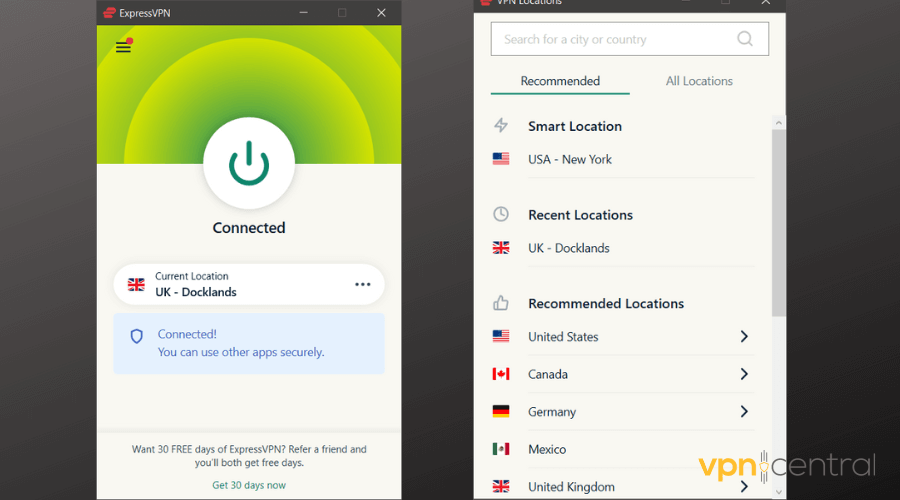
- Headquarters: British Virgin Islands
- Logs policy: No activity or connection log policy, audited by KMPG and Cure53 in 2022.
ExpressVPN is one of the most popular VPN services globally, known for its speed, security, and ease of use.
It operates over 3,000 servers in 94 countries, providing a wide range of options for users.
ExpressVPN is based in the British Virgin Islands, a jurisdiction known for its strict privacy laws. Like NordVPN, it has a privacy policy that promises not to log any information.
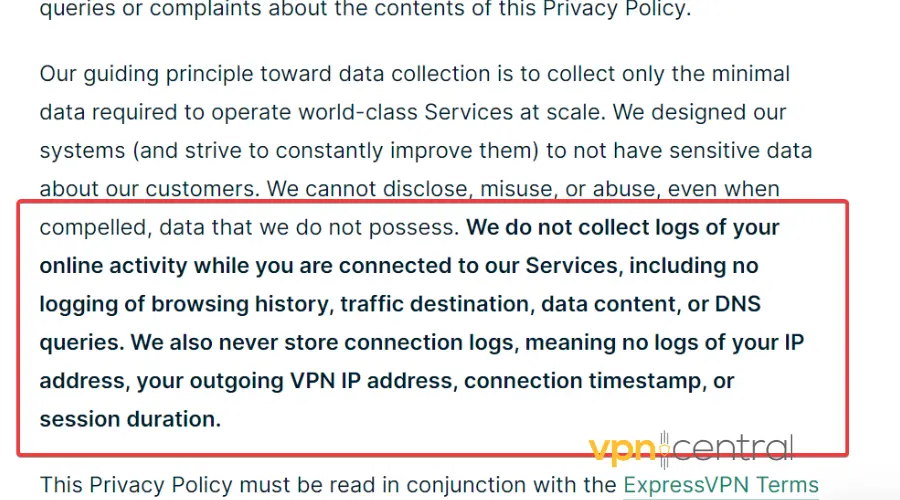
According to independent auditors, this policy holds true. The VPN is in no way compelled to give out information and auto-deletes all your activity at the end of each session.
This makes it one of the beset VPNs outside the 14 eyes alliance territory.
Furthermore, the VPN uses AES-256-bit encryption. This means that even if someone tries to snoop on your traffic, they’ll only get unreadable, jumbled text they can’t decipher.
What’s more, with features like split tunneling, a kill switch, and TrustedServer technology, ExpressVPN ensures that your online activities remain private.
✅ Pros:
- High-speed servers
- TrustedServer technology for added security
- 24/7 customer support
❌ Cons:
- Premium pricing
- Limited simultaneous connections

ExpressVPN
Establish an untraceable connection! Use ExpressVPN’s no-logs servers to keep your history private!2. CyberGhost – user-friendly VPN from Romania
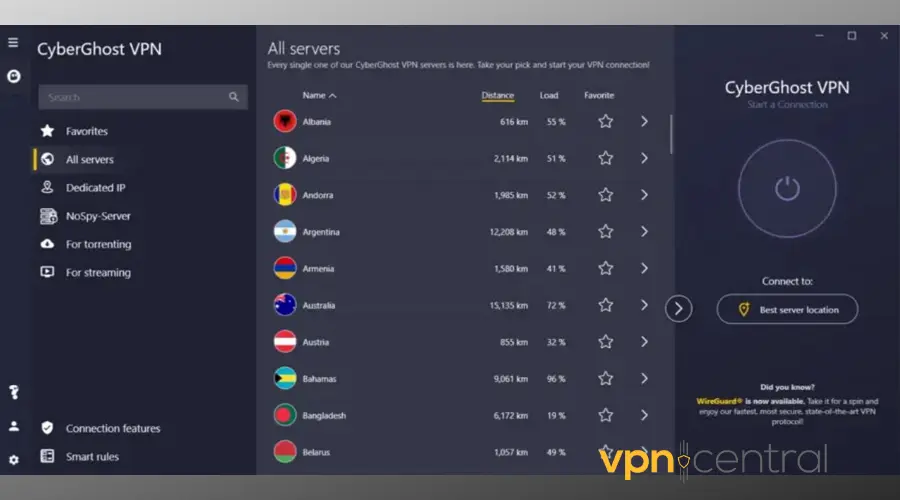
- Headquarters: Romania
- Logs Policy: strict no-logs policy audited by Deloitte.
CyberGhost is a user-friendly offshore VPN service that offers a wide range of features tailored for different use cases.
It’s based in Romania, a country outside the 14 Eyes alliance, ensuring that your data is safe from prying eyes.
Its privacy policy promises not to keep any logs of your online activity. Its statements are confirmed by Deloitte’s recent security audit.
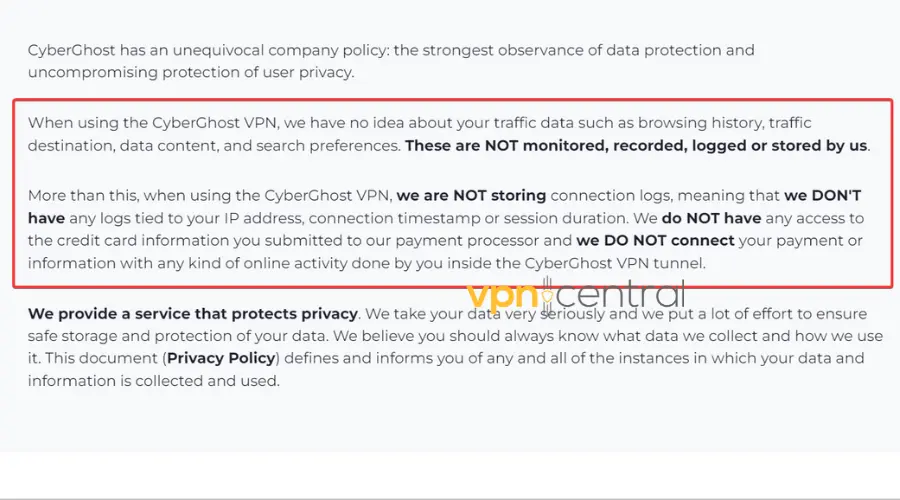
Just like any VPN that’s worth mentioning, it’s offering top-of-the-line encryption – AES 256-bit. So not only does it not log data, it’s also protecting it against third parties.
With over 9,000 servers in 90+ countries, it boasts one of the largest networks among VPN providers.
Furthermore, whether you’re looking to stream, torrent, or just browse the web securely, CyberGhost has a server optimized for your needs.
All in all, it’s a solid option for anyone who wants online freedom and privacy.
✅ Pros:
- User-friendly apps
- Dedicated servers for streaming and torrenting
- 45-day money-back guarantee
❌ Cons:
- Doesn’t work in highly censored countries
- Slower speeds on some servers

CyberGhost
Escape web monitoring and censorship! Connect to CyberGhost to get a safe and fast connection with zero traffic logs!3. NordVPN – Panama-based privacy powerhouse
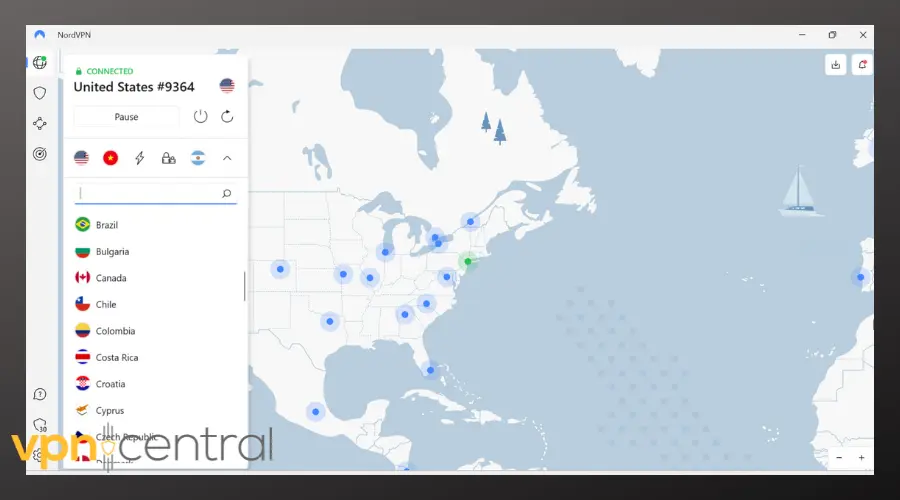
- Headquarters: Panama
- Logs policy: Strict no-logs policy audited by PricewaterhouseCoopers (PwC) in 2018 and 2020.
NordVPN is a top-tier VPN service known for its robust security features and excellent performance.
Based in Panama, a country with no mandatory data retention laws, it’s in no way obligated to keep and share user data.
This location is no coincidence because NordVPN promises to keep no user information in its zero logs policy. So what you do online is your business and your business only.
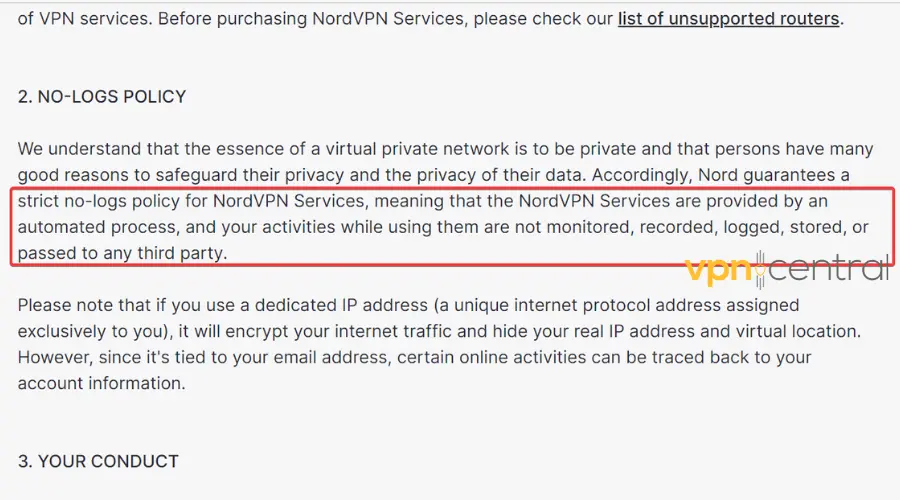
Not only that, these claims are confirmed by independent third-party security auditors.
With over 5,000 servers in 59 countries, it offers a vast network for users to choose from.
NordVPN uses AES-256 encryption, ensuring that your data is secure.
Additionally, it offers features like Double VPN, Onion over VPN, and obfuscated servers. These are great for bypassing blocks and further protecting your information.
Furthermore, its CyberSec feature blocks malicious websites and ads.
✅ Pros:
- Based in a privacy-friendly jurisdiction
- Double VPN and Onion over VPN features
- CyberSec feature for added security
❌ Cons:
- Slightly more expensive than competitors

NordVPN
Use this proven zero-logs VPN to remain under the radar! Browse freely without leaving a trace!4. Surfshark – affordable and feature-rich
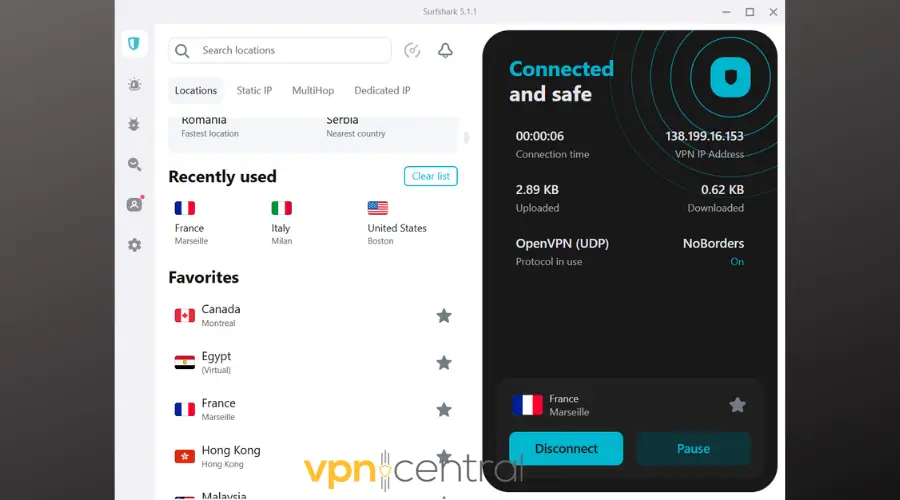
- Headquarters: Netherlands
- Logs Policy: No-logs policy (audited by Deloitte)
Surfshark has quickly gained popularity due to its affordable pricing and feature-rich apps.
It is headquartered in the Netherlands, a country focused on citizens’ online privacy.
Furthermore, its privacy policy clearly states it keeps no data about the online activity of its users. Several security audits validated this, most recently Deloitte in 2023.
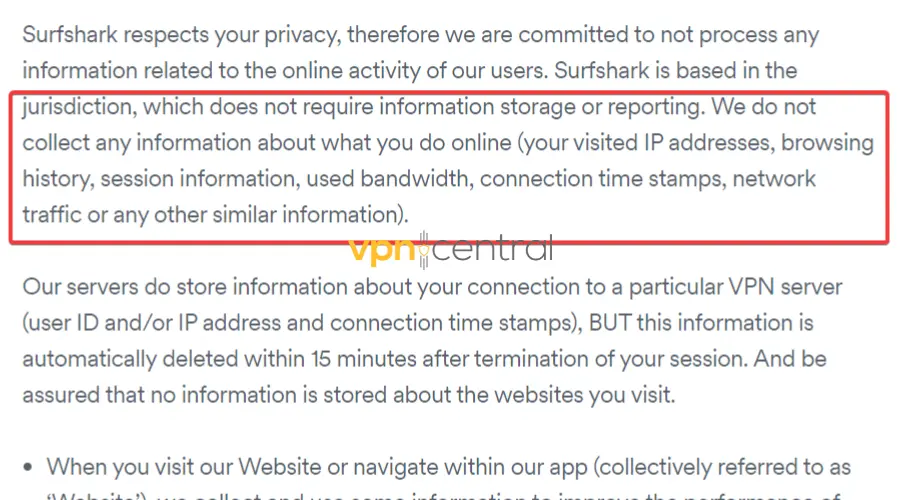
With over 3,200 servers in 100 countries, Surfshark provides a reliable and fast connection. You can access anything around the world and easily bypass censorship.
Adding to that, it has several noteworthy privacy features. For instance, it has 2 obfuscation modes: Camouflage mode hides that you use VPN and NoBorders mode ensures you can access any site or app from any country.
It also offers features like CleanWeb, which blocks ads, trackers, and malware, and MultiHop, which allows you to connect via multiple countries for added security.
✅ Pros:
- Unlimited simultaneous connections
- CleanWeb and MultiHop features
- 30-day money-back guarantee
❌ Cons:
- Smaller server network compared to competitors
- Some servers may offer slower speeds

Surfshark
Get unquestionable web privacy! Connect to Surfshark to get peace of mind when surfing the Internet!5. ProtonVPN – Swiss-based security-focused VPN
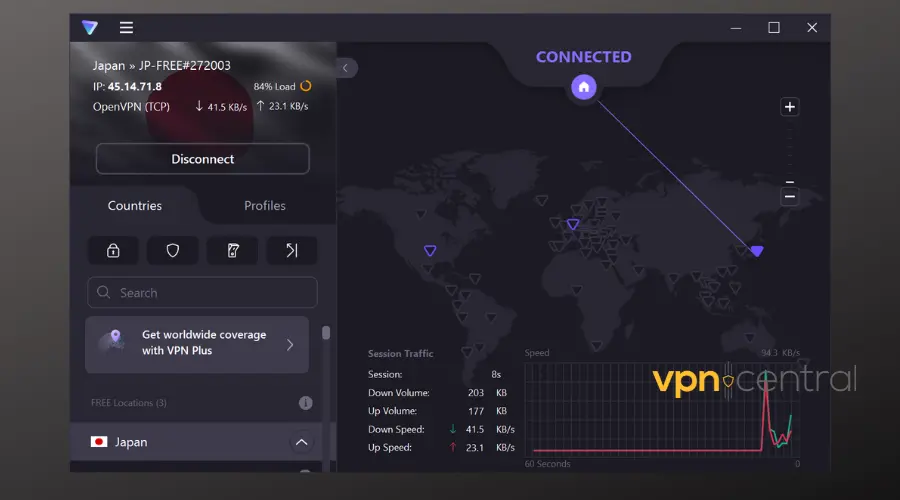
- Headquarters: Switzerland
- Logs policy: No-logs policy audited by Securitum in 2023.
Based in Switzerland, a country known for its strict privacy laws, ProtonVPN ensures that your data is safe and secure.
It was developed by the team behind ProtonMail, one of the world’s largest encrypted email services.
It promises not to log user traffic on any device, both for its free and paid versions. This was put to test and proven by several security audits, the most recent one being in 2023.
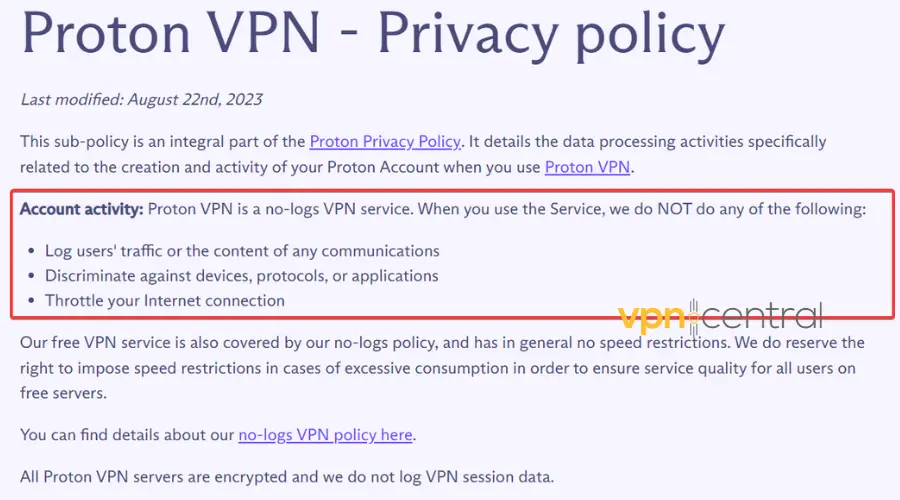
The strong emphasis on security and privacy is further proven by features like Secure Core, which routes your traffic through multiple servers.
This further protects your connection and prevents anyone from learning where your traffic is coming from.
It also offers Tor over VPN, which allows you to access the Tor network with a single click.
✅ Pros:
- Secure Core and Tor over VPN features
- Based in a privacy-friendly jurisdiction
- Strong emphasis on security
❌ Cons:
- Fewer servers compared to competitors
- No 24/7 live chat support

Proton VPN
Shield your data from trackers and logs! Use Proton VPN for advanced traffic protection and safe web surfing.Why choose an offshore VPN?
As opposed to VPNs headquartered in the US, offshore VPNs can’t be legally forced to share data with intelligence agencies. Choosing a VPN headquarters in a country with no data retention laws is better for privacy.
In the USA, various agencies such as the NSA, CIA, and DHS, along with international alliances like the 5 Eyes, 9 Eyes, or 14 Eyes, have the capability to monitor online activities. If a VPN is based in the US, it may be obligated by law to share your information with these entities.
What government agency monitors the internet?
The US has multiple and agencies through which it can access its citizens’ online activities. Some key players include:
- Foreign Intelligence Surveillance Act (FISA): FISA regulates electronic surveillance and the collection of foreign intelligence. It serves as the legal basis for US government surveillance activities, including online monitoring.
- Patriot Act: Also known as the USA PATRIOT Act, it grants extensive surveillance powers to combat terrorism. This law allows authorities to monitor communications, access financial records, and track online activities.
- National Security Agency (NSA): The NSA collects and analyzes information to protect national security. It runs surveillance programs, including online monitoring, to gather intelligence and detect potential threats.
- Central Intelligence Agency (CIA): While its primary focus is not domestic surveillance, the CIA gathers and analyzes intelligence related to national security, which may involve online intelligence activities.
- Department of Homeland Security (DHS): Responsible for ensuring US security, the DHS monitors critical infrastructure, including online systems, to defend against cyber threats and safeguard national interests.
- Five Eyes Alliance: An intelligence alliance comprising the US, UK, Canada, Australia, and New Zealand, allowing member countries to share intelligence and surveillance data.
- Nine Eyes Alliance: An extension of the Five Eyes Alliance, including additional countries like Denmark, France, the Netherlands, and Norway, with similar intelligence-sharing agreements.
- 14 Eyes Alliance: Further extends surveillance collaboration to include Germany, Belgium, Italy, Spain, and Sweden, raising concerns about data sharing and privacy implications for VPN users.
Can you be tracked with a VPN?
Yes. While it’s less likely, you can be tracked with a VPN. Some services may log data by choice or because they’re compelled by the law to do so. DNS leaks and connection drops may also compromise the privacy of data.
A VPN can hide your IP address and encrypt your online activities, making it much harder for third parties to track you.
However, there are still ways you could potentially be tracked:
- VPN logs: If a VPN provider keeps logs of user activity, those logs could be accessed by third parties.
- DNS leaks: DNS leaks will expose your online queries and browsing activity.
- Malware: If your device is infected with malware, a VPN won’t protect you from being tracked.
Choosing a reputable offshore VPN provider with a strict no-logs policy and robust security features is crucial to minimize these risks.
Can VPN be circumvented?
Yes, there are methods that can be used to detect or circumvent VPN usage, including deep packet inspection, IP blocking, and port blocking.
- Deep Packet Inspection (DPI): Some advanced firewalls use DPI to detect VPN traffic and block it.
- IP Blocking: Websites or online services might block known VPN IP addresses.
- Port blocking: Some networks might block the ports used by VPN protocols.
However, many top-tier VPNs offer features to counteract these measures, such as obfuscated servers or the ability to switch ports.
Which countries ignore DMCA?
Countries that are often cited as ignoring DMCA requests or having more lenient copyright enforcement include:
- Russia
- China
- Ukraine
- Belarus
- Kazakhstan
However, it’s essential to note that while these countries might not adhere to the DMCA, they might have their own copyright laws and enforcement mechanisms.
It’s best you make sure you only download and share files and media that comply with copyright laws. Even with a VPN, you may still get a DMCA notice.
Conclusion
Whether you’re looking to bypass geo-restrictions, avoid government surveillance, or simply surf the web anonymously, these VPNs offer top-notch security and performance.
Choosing an offshore VPN is one of the best ways to ensure your online activities remain private.
Read our disclosure page to find out how can you help VPNCentral sustain the editorial team Read more


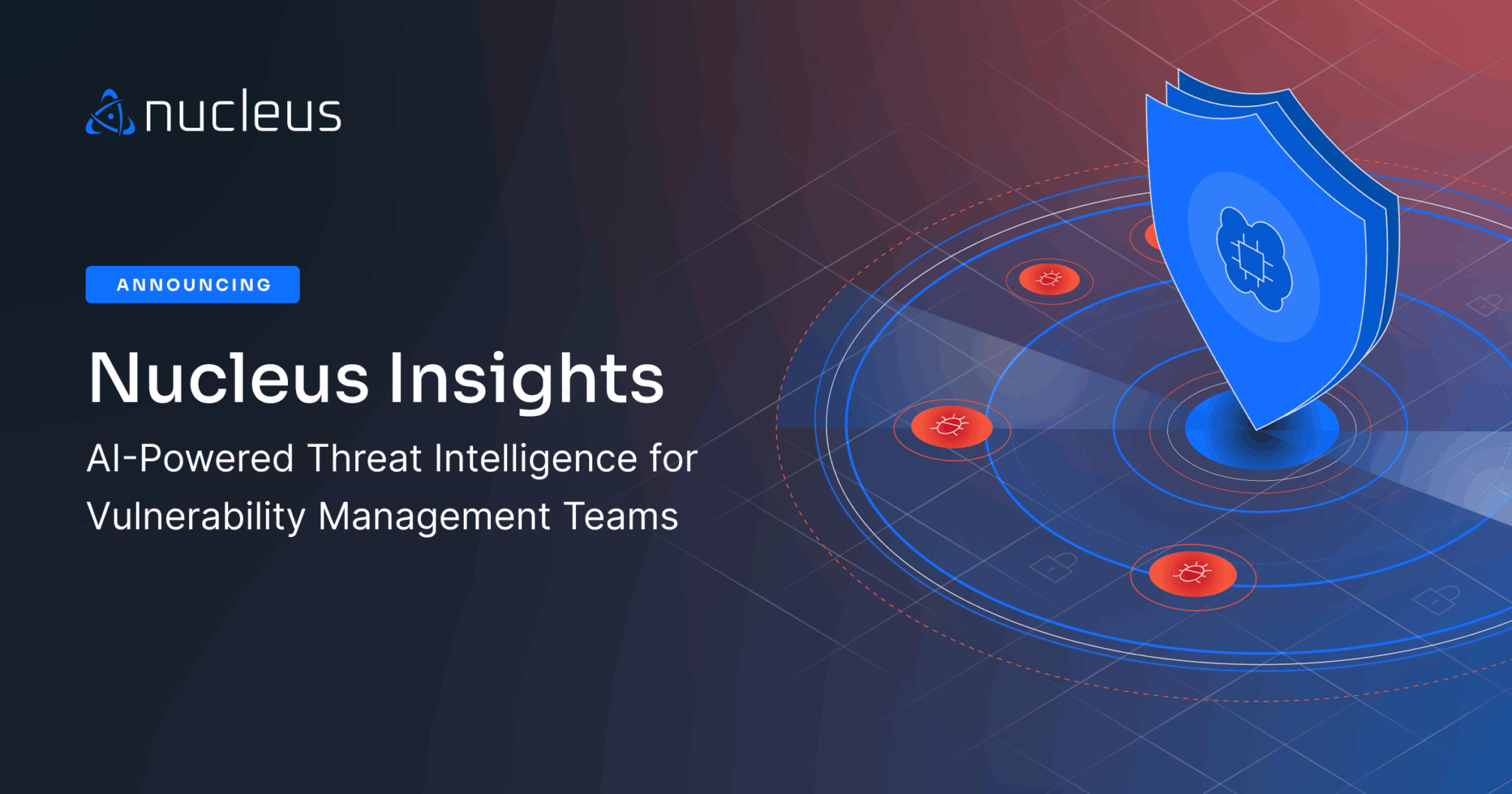



User forum
0 messages